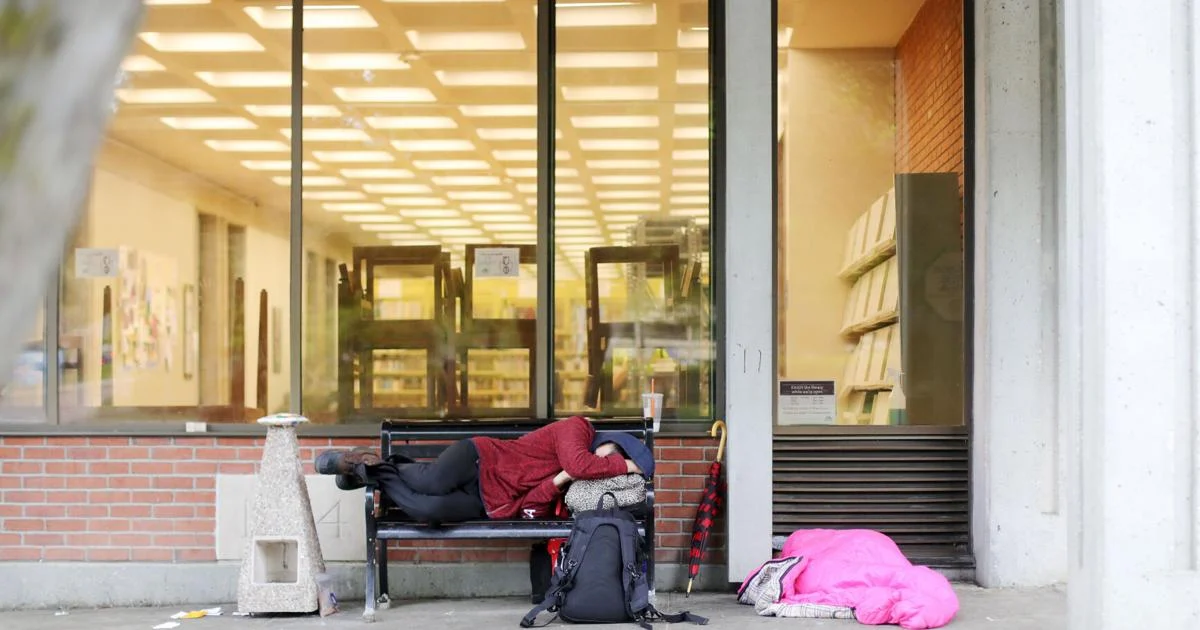Pittsfield City Council sends the proposed public camping ban to the Board of Health for review
By By Maryjane Williams,Gillian Heck — The Berkshire Eagle,The Berkshire Eagle
Copyright berkshireeagle

PITTSFIELD — The controversial proposal to ban camping and sleeping in public spaces is now in the hands of the Board of Health.
At the request of Andy Cambi, the city’s director of public health, the council unamiously voted to send the measure to the board for guidance on enforcement, standards and possible revisions.
“The causes that bring people to sleep outside and the risks that followed them are very much public health problems,” said Councilor Rhonda Serre. “Public health can set humane, evidence based standards, coordinate services and guide implementation, so we’re not just writing rules. We’re delivering results.”
The council also required the Board of Health to provide an update for the Oct. 28 City Council meeting, with subsequent reports for each council meeting as the review continues. Anything that emerges from the Board of Health will still need council approval before becoming law.
The ordinance was introduced last spring by Mayor Peter Marchetti, who said it was intended to address complaints from downtown business owners about trash, defecation, panhandling and people sleeping in doorways. Supporters argue the measure is needed to increase foot traffic and the cleanliness of downtown to protect businesses, while opponents counter that it criminalizes poverty without addressing the root causes of homelessness.
“I want to make sure we include empathy and compassion and solutions,” said Councilor Kathy Amuso. “We do need to protect our businesses, [on] North Street, the businesses are destination, and some of the business owners are getting very frustrated with what is happening in their areas. We need to make sure that’s addressed.”
However, Councilor Dina Lampiasi warned against approaches that rely too heavily on punishment.
“Research has shown that punitive approaches such as enforcement, like having sweeps and arrests, fines that restrict the basic needs of people lead to worse outcomes,” she said. “So whatever we decide to pass… needs to be rooted in solutions, not in what’s going on by the headline or gives false hope to the merchants on North Street.”
Several amendments to the ordinance proposed by Councilor Kenneth Warren were also referred to the Board of Health. He recommended limiting the ordinance’s scope to the downtown Creative District, removing references to parks and waterways, clarifying the definition of “temporarily sleep” and rewriting the section on storage of personal property. Warren criticized the current language as “authoritarian” for allowing belongings to be removed without notice.
Attorney Brad Gordon, who sits on the Board of Health, submitted a draft enforcement framework that would rely on a Mobile Crisis Intervention Responder as the first point of contact for potential violations, that will then coordinate with community-based organizations for continued care where applicable.
“The remedies and interventions under this section shall be restorative, supportive, and non-cohersive, aiming to promote stability, safety and wellbeing,” Gordon wrote. “No civil or criminal penalties shall apply. All responses shall prioritize dignity, harm reduction, and long-term connection to care.”
Over a dozen residents praised the move to send the measure to the Board of Health during public comment, while still urging the city to take a more compassionate approach than the ordinance to address homelessness.
“As a coalition, we believe reframing this issue as a matter of public health rather than criminalization [is] the right to direction for Pittsfield,” said Kamayue Gomes, a member of the Homes Not Handcuffs Coalition, which has spoken out against the ordinance over the past few months. “Paired with alternatives like designated public camping space, increased shelter capacity, mobile sanitation facilities, we can directly address immediate needs while also creating safer, cleaner and healthier public spaces for everyone.”
Prospective business owner Aisha Baptiste-Gilmore, who is preparing to open a shop in Pittsfield, said even she opposes the ordinance, arguing that “a ban doesn’t solve homelessness. It hides it … without addressing the real issues like housing, jobs and mental health support. As a business owner, I want to be a part of a city that treats all people with dignity, because that kind of community is where businesses should thrive.”
Sophie Tannenbaum with the Wildflower Alliance emphasized the urgency of finding practical solutions — including housing — before winter.
“This is the moment when you all decide how many excess deaths you can stomach in Pittsfield this winter,” she said. “Moving someone along from sleeping in a doorway in freezing temperatures does not ensure their survival. It just increases their chances of freezing to death.”
Although she supported the decision to refer the measure, Councilor Alisa Costa, like several residents during the public comment, cautioned that progress may take time.
“Don’t do it rushed,” she said. “Do it right.”



